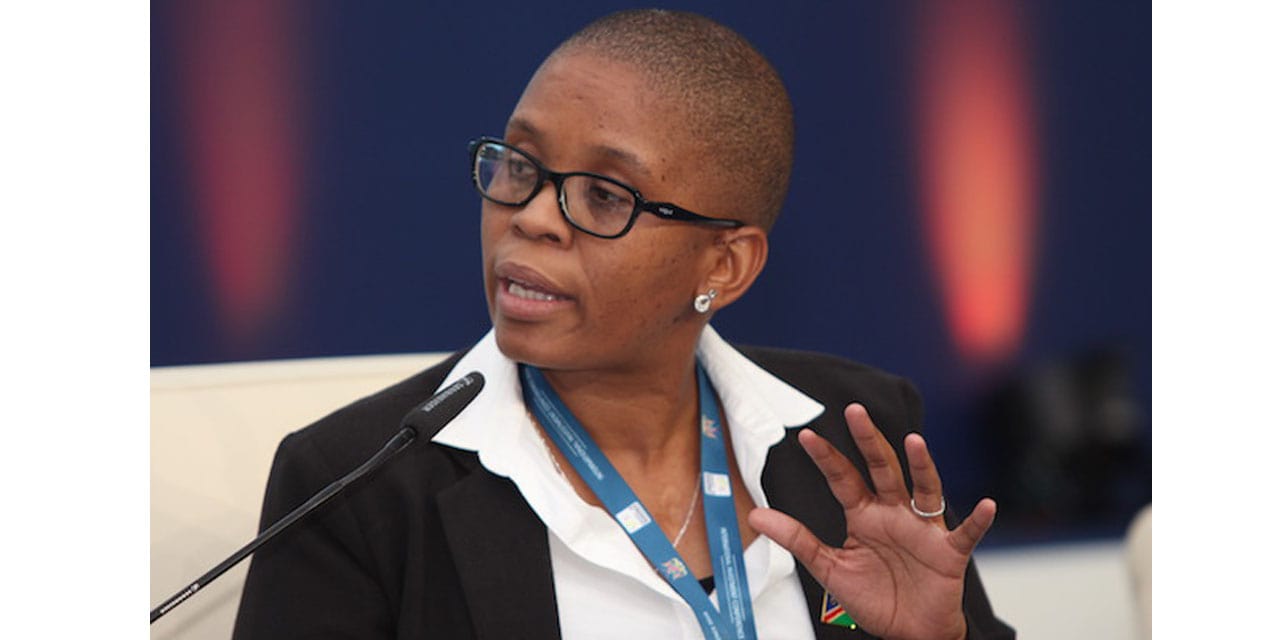Obrien Simasiku
The Fishrot scandal, regarded as the biggest corruption cases ever to have happened in an independent Namibia is touted as the most challenging scenario to test the effectiveness and implementation of the Whistleblower Protection Act of 2017, says the Minister of Justice Yvonne Dausab.
The high level corruption involves, whistleblower Johannes Stefánsson, the former director of operations in Namibia for the Icelandic fishing company Samherji, who spilled the beans involving hundreds of millions of dollars in which businessmen and politicians benefitted in bribers, while facilitating the access to fishing quotas for Samherji in Namibian waters.
At the centre of this issue is the extradition of Stefánsson, who is a key witness in the matter.
Among the accused in the matter are former Minister of Justice Sacky Shanghala, James Hatuikulipi, Pius Mwatelulo, former minister of fisheries and marine resources Bernhard Esau, Tamson Hatuikulipi, Ricardo Gustavo, Mike Nghipunya, Otneel Shuudifonya, Phillipus Mwapopi who face charges that include counts of fraud, racketeering, money laundering and corruption.
“The infamous Fishrot scandal is currently testing our systems, but we must be cognizant that whistleblowers have played their part. The ACC, the prosecution and law enforcement is under pressure to deliver. Our systems work, because rarely do we find that, two former ministers are incarcerated. Our witness and whistleblower systems are under scrutiny and we must act and have work to do,” said Dausab at the launch of the Government Institutions Pension Fund (GIPF) Ethics Helpdesk and Website.
“The launch should not be a public relations job to enhance the company brand and reputation, rather I implore the board, management to render the necessary support in which ever manner, to make sure the follow through in reports and that perpetrators are brought to book. Further see to it that whistleblowers are not victimised and are actively protected,” she urged.
The launch provides an opportunity for whistleblowers to report any untoward activities involving GIPF and its staff.
In that regard, Dausab, said, the legislation specifically provides for the whistleblower protection office and further provides for investigations of complaints of detrimental actions, review of certain decisions and remedies of persons against whom detrimental action is taken.
“Government in general and particularly the ministry of justice, we remain committed to ensure implementation of this legislation however this must be done appropriately and effectively. And this is where the cost of implementation comes into play. The cost estimate of this implementation is N$160 million per annum, if one takes into account the financial human capital cost involved in implementing the law.”
She noted, the funds are simply not available and hence government’s attempts to source external funding such as grants in order to formally realise this noble objective.
“For this, the Act to have legitimacy the end users must have confidence in it, this is followed by the institutions charged with the responsibility of receiving and investigating disclosures, they must not only be seen, but must be independent, impartial and competent. They must also be independent from other organisations that are subject of disclosures,” stressed the minister.




